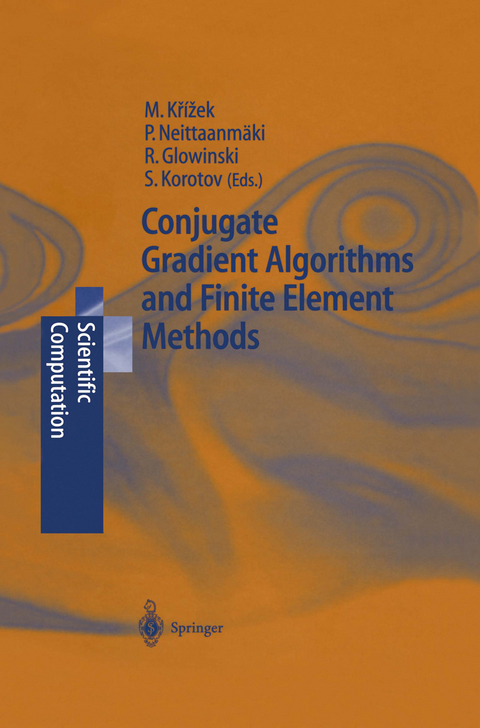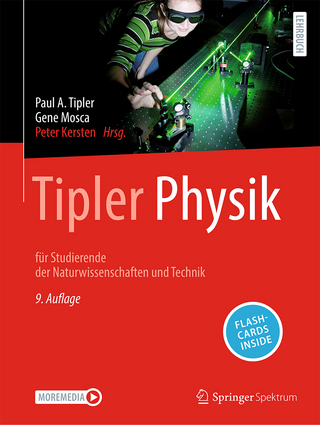
Conjugate Gradient Algorithms and Finite Element Methods
Springer Berlin (Verlag)
978-3-540-21319-2 (ISBN)
The position taken in this collection of pedagogically written essays is that conjugate gradient algorithms and finite element methods complement each other extremely well.
Via their combinations practitioners have been able to solve complicated, direct and inverse, multidemensional problems modeled by ordinary or partial differential equations and inequalities, not necessarily linear, optimal control and optimal design being part of these problems.
The aim of this book is to present both methods in the context of complicated problems modeled by linear and nonlinear partial differential equations, to provide an in-depth discussion on their implementation aspects. The authors show that conjugate gradient methods and finite element methods apply to the solution of real-life problems. They address graduate students as well as experts in scientific computing.
The founders of the conjugate gradient method.- Conjugate gradients and finite elements - a golden jubilee.- Geometric interpretations of conjugate gradient and related methods.- The convergence of Krylov methods and Ritz values.- An application of the Shermann-Morrison formula to the GMRES method.- A parallel CG solver based on domain decomposition and non-smooth aggregation.- Deflation in preconditioned conjugate gradient methods for finite element problems.- Nonsmooth equation method for nonlinear nonconvex optimization.- Nonstandard nonobtuse refinements of planar triangulations.- Acute versus nonobtuse tetrahedralizations.- A posteriori eror estimation of "quantities of interest" on "quantity-adapted meshes".- Inversion of block-tridiagonal matrices and nonnegativity preservation in the numerical solution of linear parabolic PDEs.- On the nonnegativity conservation in semidiscrete parabolic problems.- Iterative solution methods of the Maxwell equations using staggered grid spatial discretization.- Iterative solution of linear variational problems in Hilbert spaces: Some conjugate gradients success stories.- On the application of preconditioning operators for nonlinear elliptic problems.- On a conjugate gradient/Newton/penalty method for the solution of obstacle problems. Application to the solution of an eikonal system with Dirichlet boundary conditions.- The use of bilinear rectangular elements in reconstruction of panoramic images.- Finite element discretization and iterative solution techniques for multiphase flows in gas-liquid reactors.- Implicit flux-corrected transport algorithm for finite element simulation of the compressible Euler equations.- Application of the PCG method in solution of a nuclear reactor criticality problem.
| Erscheint lt. Verlag | 11.6.2004 |
|---|---|
| Reihe/Serie | Scientific Computation |
| Zusatzinfo | XV, 384 p. |
| Verlagsort | Berlin |
| Sprache | englisch |
| Maße | 155 x 235 mm |
| Gewicht | 805 g |
| Themenwelt | Naturwissenschaften ► Physik / Astronomie ► Allgemeines / Lexika |
| Naturwissenschaften ► Physik / Astronomie ► Theoretische Physik | |
| Schlagworte | algorithm • algorithms • Conjugate Gradient Method • Construction • Control • differential equation • domain decomposition • Finite Element Method • fluid- and aerodynamics • Maxwell's equations • Multiphase Flow • Operator • Optimization • partial differential equation • Scientific Computing • Scientific Computing / Wissenschaftliches Rechnen • Simulation • Triangulation |
| ISBN-10 | 3-540-21319-8 / 3540213198 |
| ISBN-13 | 978-3-540-21319-2 / 9783540213192 |
| Zustand | Neuware |
| Haben Sie eine Frage zum Produkt? |
aus dem Bereich


